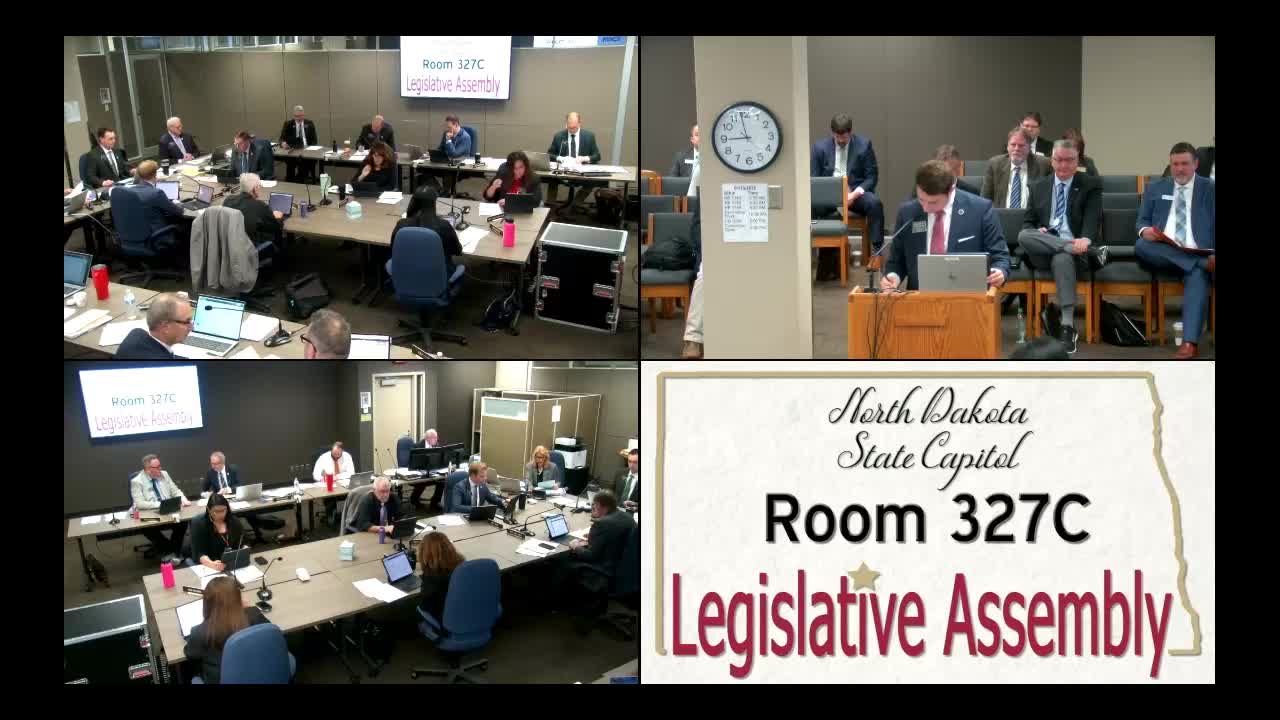House panel hears repeal push for Sunday closing laws; amendment offered to protect worship time
Get AI-powered insights, summaries, and transcripts
Subscribe
Summary
Representative Matt Heilman asked lawmakers to restore parts of the state’s pre-2019 Sunday closing laws, saying a shared day of rest protects workers, families and religious observance.
Representative Matt Heilman offered a bill to restore significant elements of North Dakota’s former Sunday closing laws, arguing the statute would protect workers’ rest, family time and religious observance.
Heilman, sponsor of House Bill 1150, told the Industry, Business and Labor Committee he filed language from the earlier statute repealed in 2019. "It is important for people to rest, recover, spend time with family and to practice their religion," he said, and noted the bill contains numerous exemptions for categories of businesses. Heilman said he is open to amendments and indicated he has drafted a narrower amendment protecting employees’ right to worship if the committee prefers that approach.
Testimony and debate split broadly along lines of social and economic trade-offs. Pastor and community supporter Representative Holverson spoke in favor of the bill on cultural and religious grounds, arguing the seven-day week and a communal rest day are foundational, and urged the committee to restore blue-law protections to strengthen families and civic life. He said the state has a legitimate interest in a shared day of rest.
Opponents included business and trade groups. Eric Spencer of the Greater North Dakota Chamber testified in opposition, arguing the repeal in 2019 preserved consumer choice and helped keep dollars in North Dakota; he recommended caution and said chapter 14 of the Century Code already requires religious accommodations for employees. Mike Root of the North Dakota Retail Association and Cale Dunwoody of the Fargo Moorhead West Fargo Chamber urged a do-not-pass recommendation, saying the market and local businesses have adapted since repeal.
Witnesses raised practical concerns. Multiple opponents said the proposed law’s long list of exemptions (as drafted) still would leave ambiguities — for example, whether production agriculture or certain care providers would be covered — and that the modern retail and online marketplace undermines the enforcement and economic effects of a statutory Sunday closure. Farm Bureau urged explicit exemption for production agriculture because farming is a 24/7 activity.
During committee consideration, Representative Koppelman and others proposed a narrower path: rather than reinstating broad Sunday-closing rules, the committee could adopt an amendment protecting employees’ right to time off for worship or Sabbath observance and that employers may not penalize that practice. Heilman said he had a draft amendment that would strike the original bill text and instead create a limited right to time off for worship.
The committee debated the amendment’s consequences for employers who struggle to staff weekend shifts. Representative Schauer and others opposed the amendment on practicality grounds, saying it could hamstring employers who already find weekend staffing difficult. Representative Ruby moved a "do not pass" recommendation on the original bill; Representative Schauer seconded the motion.
The committee recorded the do-not-pass motion for House Bill 1150; committee roll call as read in the transcript shows 10 members voting yes and 4 members voting no, defeating the bill in committee form as presented.
Ending
Committee members discussed pursuing a narrower amendment to protect workers’ right to worship while avoiding broad Sunday-closing mandates. The sponsor indicated willingness to work with the committee on language; committee took recorded action on the bill as presented (do not pass) and recessed to consider amendments and next steps.
